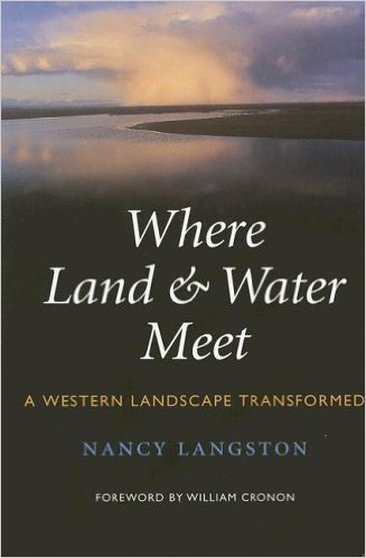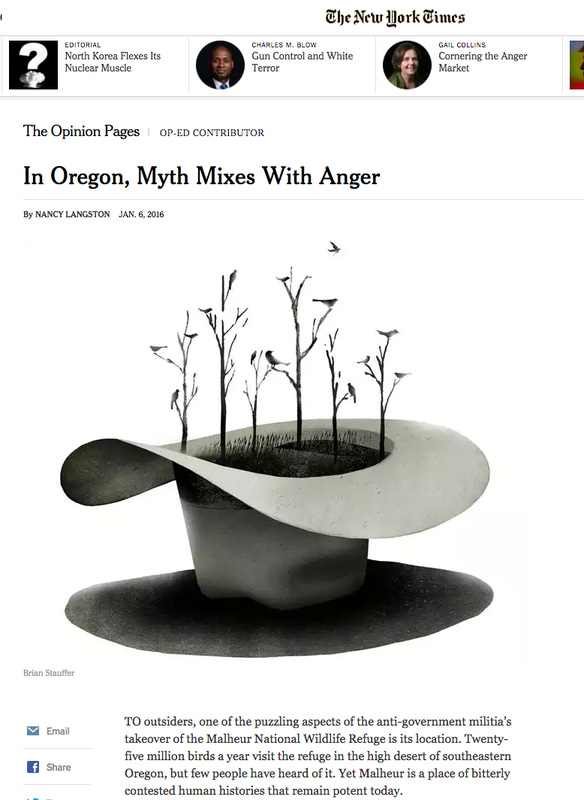|
Malheur Conflicts In 2003, my environmental history of Malheur National Wildlife Refuge was published, titled Where Land and Water Meet: A Western Landscape Transformed (University of Washington Press, 2003). Where Land and Water Meet explores conflicts between the visions of ranchers, homesteaders, irrigationists, wildlife managers, and modern environmentalists, allowing us to understand how their histories help set the stage for current conflicts. In this remote watershed, ranchers, irrigation speculators, farmers, and wildlife biologists competed for control of the uncertain boundaries between water and land. All the groups that have lived and worked in the Malheur basin have changed the connections between water and land, and all of these changes have led to unintended consequences. But the moral of this story is not that everything people has done has degraded the ecosystem. My goal throughout this book is to tell the story of one small place that, for all its remoteness, has myriad ecological and political connections to much larger places. The history of this landscape reveals the many ways a landscape can become impoverished. Yet I also show that people can and have used that history to improve their relationships with the land. Surprisingly, perhaps, there are lots of success stories in this book--stories that suggest that, while we certainly make plenty of mistakes, we can also build on them to improve management, if we create a structure for adaptive management that allows for new stories to find a voice in the process. These efforts have only strengthened in recent years, and these are the stories we should be telling and celebrating. You can learn more at High Desert Partnership and the Harney Basin Wetlands Initiative. The 2013 Comprehensive Conservation plan for the Malheur Refuge is a landmark example of the good things that happen when tribes, ranchers, conservation groups, and agency staff collaborate. You can listen to an interview with Oregon Public Radio or watch a clip on the Daily Show to learn a bit more about the ways this history influences the current conflicts. I just finished your wonderful book, Where Land and Water Meet. I found it mesmerizing -- the writing just wonderful, the thinking so clear, the stories close to my heart and work experience. ... I particularly loved how you brought the reader, through the details of a particular cultural-environmental history, to an understanding of American pragmatism and its relationship to the underpinnings of our democracy. Wow! I felt as if I had taken a fine university course just sitting in my chair by the fire. "Though trained in ecology, Langston is also a skilled historian and graceful writer. Environmental historians pride themselves on their ability to synthesize scientific and historical knowledge. Once again, Langston demonstrates that she does this better than almost anyone in the field." Robert Wilson, Review of Where Land and Water Meet |
|


